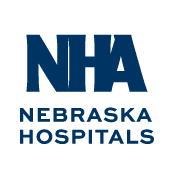CMS Hospital Conditions of Participation 2024 webinar series (THA 3.20.24)
Dates: March 20, 27, April 3, 10, & 17, 2024
Time: 12:00 p.m. – 2:00p.m. Central
Cost: $595 to NHA members (Per hospital, no charge for additional lines. Those individuals interested in viewing the recording must register separately at the Zoom link prior to the start of the webinar. Zoom will send each individual registered an email containing an access code to view the recording.)
Course Curriculum:
This five-part online seminar series will cover the entire CMS Hospital CoP manual – Appendix A. It is a fantastic way to educate everyone in your hospital on all the sections of the CMS hospital manual, especially ones that apply to their department. This program will discuss the most problematic standards and how the hospital can do a gap analysis to assist in compliance with the CoPs.
Every hospital that accepts payment for Medicare and Medicaid patients must comply with the Centers for Medicare & Medicaid Services Conditions of Participation. The manual has interpretive guidelines that must be followed for all patients treated in the hospital or hospital owned departments. Facilities with deemed status accredited by the Joint Commission (TJC), HFAP, CIHQ, and DNV Healthcare must follow these regulations.
Sections addressed include infection prevention and control and antibiotic stewardship program, QAPI, medical record services, dietary, utilization review, emergency services, surgical services, anesthesia, PACU, medical staff, nursing services, lab, rehabilitation, radiology, respiratory, physical environment, pharmacy, organ and tissue procurement, patient rights, and discharge planning.
The interpretive guidelines serve as the basis for determining hospital compliance and though some changes from 2020 continue to have interpretive guidelines and survey procedures pending, hospitals are still expected to comply with the regulations. This program will include the 2020 changes, where some of the gaps continue – absence of interpretive guidelines and survey procedures, and any recent updates.
CMS developed worksheets for assessing compliance with the QAPI, discharge planning standards and infection control. Though no longer utilized by State and Federal surveyors, the worksheets are available as excellent self-assessment tools for hospitals. These three worksheets will be covered.
Learning Objectives:
Part 1
• Discuss how to locate a copy of the current CMS CoP manual.
• Describe that a history and physical for a patient undergoing an elective surgery must not be older than 30 days and updated the day of surgery.
• Discuss that verbal orders must be signed off by the physician along with a date and TIME.
• Describe the changes to medical record requirements.
Part 2
• Recall that CMS has restraint standards that hospitals must follow.
• Describe that a hospital must have a grievance policy and procedure in place.
• Recall that interpreters should be provided for patients with limited English proficiency and hearing impairment.
• Describe how non-physician practitioners – PA, NPs – can order restraints.
Part 3
• Describe which medications must be given timely and within one of three blocks of time.
• Recall that all order/protocols should be approved by the Medical Staff and an order entered into the medical record and signed off.
• Recall that a nursing care plan must be in writing, started soon after admission and maintained in the medical record.
• Discuss patient safety issues with compounding pharmacies.
• Recall that the hospital must have a safe opioid policy approved by the MEC and staff must be educated on the policy.
Part 4
• Recall the requirement for and elements of a QAPI program.
• Describe the need for radiology policies, including one on radiation safety and the need for qualified staff.
• Discuss the new option of credentialing the dietician to order diets – if allowed by the state.
• Describe the need for facility maintenance program to include water management.
Part 5
• Discuss that CMS requires many policies in infection prevention and control.
• Recall that patients referred a post-acute care provider – PAC – must be given a list in writing of those available and this must be documented in the medical record.
• Describe that all staff must be trained in the hospital’s policy on organ donation.
• Recall that CMS has specific things that are required be documented in the medical record regarding the post-anesthesia assessment.
Intended Audience:
CEOs, chief operations officers, chief nursing officers, chief legal officers, nurses and medical staff, quality managers, nurse educators, risk managers, compliance officers, chief of health information, pharmacists, social workers, discharge planners, patient safety officers, outpatient director, director of rehab, infection control, directors of radiology.
Speaker:
Laura A. Dixon, BS, JD, RN, CPHRM, President, Healthcare Risk Education and Consulting, LLC, Denver, CO
Laura A. Dixon is the president of Healthcare Risk Education and Consulting. She previously served as the Director, Facility Patient Safety and Risk Management and Operations for COPIC where she provided patient safety and risk management consultation and training to facilities, practitioners and staff in multiple states.
Ms. Dixon has more than twenty years of clinical experience in acute care facilities, including critical care, coronary care, peri-operative services and pain management. Prior to joining COPIC, she served as the Director, Western Region, Patient Safety and Risk Management for The Doctors Company, Napa, California. In this capacity, she provided patient safety and risk management consultation to the physicians and staff for the western United States.
As a registered nurse and attorney, Laura holds a Bachelor of Science degree from Regis University, a Doctor of Jurisprudence degree from Drake University College of Law, and a Registered Nurse Diploma from Saint Luke’s School Professional Nursing. She is licensed to practice law in Colorado and California.

